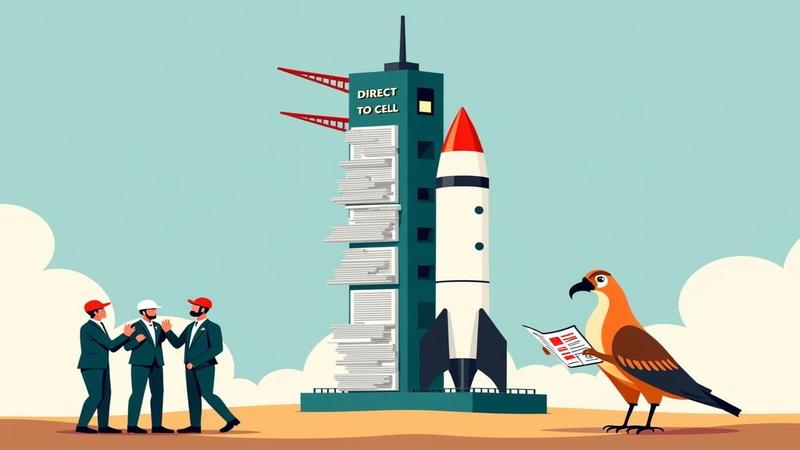SpaceX Invests $17B So Your Phone Can Ghost You From Orbit

SpaceX just put $17 billion on the table to end America’s most sacred tradition: waving your phone at the sky and bargaining with clouds. It’s a bet so big it needs its own seatbelt. The plan is direct-to-cell, which sounds like prison but promises your pocket can now reach low Earth orbit without buying dinner first.
Executives described it as “like stapling a cell tower to a comet, but politely.” Translation: roaming charges will now require a telescope. The company swears your phone won’t notice the difference, apart from the part where it calls space and space actually picks up.
If successful, dead zones will be euthanized. Your texts will make it out of basements, canyons, and that one grocery aisle where tortillas cancel Bluetooth. Even your voicemail will develop altitude sickness.
Analysts say the addressable market is “everyone who has ever held a phone higher than their dignity.” Jeff Bezos was spotted tying a flip phone to a kite in silent protest, while handset makers practice saying “Yes, it’s compatible with the sky” without blinking.
Early adopters are already lining up to buy the satellite SMS hotspot clip, a small device that looks like hope duct-taped to a battery. Marketing promises “five bars in the middle of nowhere,” finally delivering what motivational posters could not. Your group chat will now survive rafting trips and cousin weddings.
Engineers insist latency will be low enough to order pizza from a glacier before it melts. They’ve been A/B testing in zero gravity, where A is “works” and B is “cow chews antenna.” Field trials in rural counties confirmed that the only thing more reliable than corn is now notification spam.

Regulators asked whether turning the sky into a blinking router might confuse birds, planes, or horoscopes. SpaceX replied by drawing a coverage map that spelled “trust us” across Nebraska. For redundancy, a backup constellation will whisper, “Are you still watching?” every 45 minutes.
Competitors countered with balloons, dirigibles, and a blimp that promises premium coverage if you also join its gym. NASA, the designated adult, reminded everyone the exosphere is not a coworking space. Meanwhile, telecoms practiced their ancient ritual: promising unlimited everything, then adding an asterisk so large it eclipses the Moon.
Investors nodded solemnly: “Every bar is a revenue bar.” New plans include Unlimited (Unless You Mean It), Family (But Not Yours), and Explorer (For People Who Lost the Wi‑Fi Password to Earth). For the fashion-forward, there’s even an upsell: the orbital-roaming eSIM card, which pairs perfectly with a jacket that says “Ask Me About My Vacuum Fees.”
Ranchers cheered; now the north pasture gets service and the cows can finally text “moo” with confidence. Fishermen received push notifications from squid asking for collabs. National parks warned hikers that their SOS will work, but so will Aunt Linda’s meme at 14,000 feet.
Astrologers announced Mercury retrograde will henceforth be called “scheduled network optimization.” Dating apps rolled out a new preference: geostationary, because nothing says commitment like hovering forever. Constellations might ghost you, but on this network they at least leave a read receipt.
Of course, $17 billion is a lot to spend proving the sky can hold a customer service hotline. But according to the slide deck, the future is borderless, gravity-optional, and lightly salted. And if the math somehow doesn’t pencil, don’t worry—management says it’s a one‑time charge that keeps in touch.
